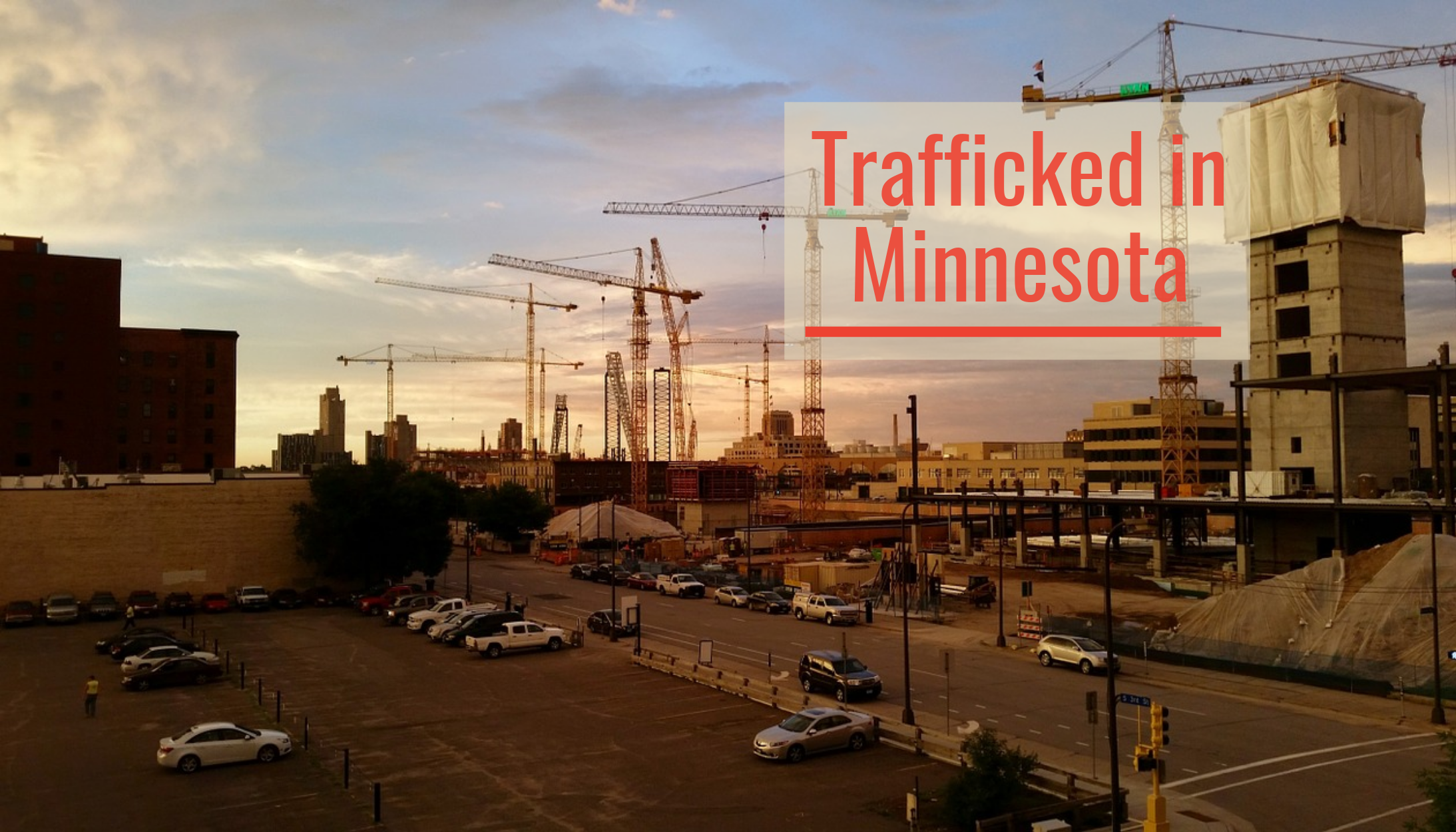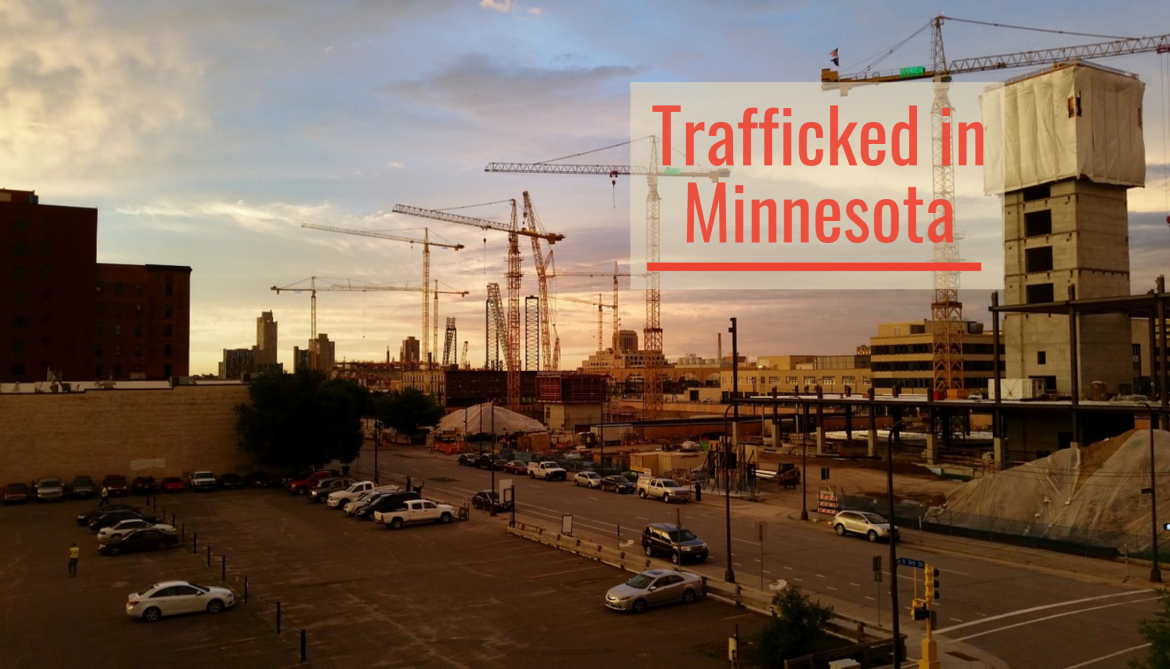

Share
Momentum is building in Minneapolis and throughout Minnesota to challenge labor trafficking and its root causes.
It all began with an arrest
In September 2018 contractor Ricardo Batres was charged with labor trafficking for the abuses suffered by Yimer Iriarte Banegas and Jose Adalid Zavala Lopez, among others. The charging documents allege that Batres brought undocumented workers to the state, underpaid them, forced them to work in dangerous conditions and threatened them with deportation if they complained.
As we previously reported, the charges were the result of a lengthy investigation into workplace abuses documented by Iriarte Banegas and Zavala Lopez with the support of Centro de Trabajadores Unidos en Lucha (CTUL). Information was also provided to the Minnesota Department of Commerce Fraud Bureau by labor unions and The Advocates for Human Rights.
Notably, the Batres arrest was the first time a labor trafficking charge has been brought in Minnesota.

Iriarte Banegas was 20 years old when he was recruited by Batres to work in Minnesota from North Carolina. Iriarte Banegas recounts his experience with unease. While satisfied that Batres is being prosecuted for labor trafficking, he remains afraid saying,“after everything that’s happened, I don’t feel good, I am often afraid because I feel like anything will happen to me. This type of psychological harm kills you slowly. ”
Batres would often flaunt his money and brag that he knows dangerous people. It gave Iriarte Banegas the impression that Batres is capable of getting away with anything, specifically because “in the world we live in wealthy people get away with things.”
Nevertheless Iriarte Banegas believes in fighting against the structural problems in the construction industry and supporting those that have been through similar ordeals, “while we stay silent these things happen.”
He is not alone.
Minneapolis leads in addressing human trafficking.
Minneapolis is one of three cities in the United States developing a comprehensive city-wide approach to prevent exploitation and trafficking through the Pathways to Freedom city challenge led by Humanity United and the NoVo Foundation. Pathways to Freedom is the third challenge of Partnership for Freedom, a public-private partnership created by Humanity United and dedicated to spurring innovation in the fight to end human trafficking.
Shunu Shrestha is the Senior Advisor for Human Trafficking Prevention for the City of Minneapolis, and is leading within city government to tackle labor and sex trafficking. Shrestha has worked alongside trafficking survivors for nearly a decade, and in her role at City Hall she works across multiple city agencies and with a range of community stakeholders to develop comprehensive approaches to both prevent trafficking and address unmet survivor needs. She began her position in June 2018 and over the two years of the grant she expects to develop a, “comprehensive, harvested city wide response to prevent trafficking and exploitation while at the same time providing support to survivors.”
She will take an inventory of current city policies and practices to provide an assessment to answer the question, “Is there a policy gap within the city system?”
“The idea is not to recreate the wheel if the wheel is already there, but to create the wheel if the wheel isn’t there,” she said. Community session will be held to gather opinions and perspectives.
Complementing the City’s efforts, CTUL is also receiving grant funds and will have a seat at the table to speak about their workplace rights outreach with low-wage workers of color to address wage theft, safety violations, and other forms of abuse and exploitation.
Another voice in the discussion is that of Megan Tackney, the program manager for Pathways to Freedom
who administers the grant. From their perspective the goal is to, “examine what are the economic and social injustice issues that are at the root of severe exploitation.”
During a time of heightened rhetoric the vulnerabilities of immigrant communities is becoming more severe.
“As immigration crackdowns are increasing people are becoming more vulnerable to trafficking, those that are being trafficked are less likely to seek help,” Tackney said. “Many of the trafficking cases that are coming out are those with temporary visas.”
Local governments are uniquely positioned to address the root causes of exploitation and to focus attention on vulnerable communities.
“Overall we believe that when a person is desperate for a job, then a worker has no voice. When they are afraid of retaliation or deportation then they become more vulnerable to severe exploitation including human trafficking,” Tackney said.
Minnesota Statewide Labor Trafficking Protocol Guidelines
In order to further combat labor trafficking at a January 31st press conference, The Advocates for Human Rights along with their partners unveiled the Minnesota Statewide Labor Trafficking Protocol Guidelines
. It is designed to offer tools against labor trafficking.
“I view these protocol guidelines as another step on the journey to expanding our state’s focus further to encompass labor trafficking and recognizing that what unifies any kind of trafficking is someone who has power exploiting someone with vulnerabilities,” Representative Dave Pinto commented.
“To make a system work better for those that are impacted by human trafficking we must collaborate and coordinate our individual responses,” said Beatriz Menanteau, supervisor for the Violence Preventions Program Unit at the Minnesota Department of Health. “The different parts of the system must work together.”
People like Batres look for different ways to exploit someone and gain control. Promises are made like housing, hours and pay and are slowly taken away. If someone leaves the trafficking situation they lose housing, jobs and in some cases relationships.
Iriarte Banegas recalled:
“At first he [Batres] promised and offered a lot of things. As an immigrant you look for support, unfortunately we found ourselves with the wrong person. He asked about our status because we thought he would help us because he said he had connections. In actuality he was asking for our status so he could figure out whether he could manipulate us. Batres was very predatory, he promised certain hours but then our wages were taken from us.”
Ultimately, being trafficked has lasting psychological impacts. Iriarte Banegas explained that, “it’s hard to accept how much I have been mentally manipulated” by Batres.
Laura Garlock works with the International Institute of Minnesota in their anti-human trafficking program and explains that, “the experience of trafficking is traumatic. What is unique and important about the [statewide labor trafficking protocol] guidelines is that they are trauma informed and give agency to survivors of labor trafficking. Ensuring that survivors are able to make decisions for themselves is a critical component of healing,” Garlock said. “It’s important to remember that survivors aren’t victims forever.”

